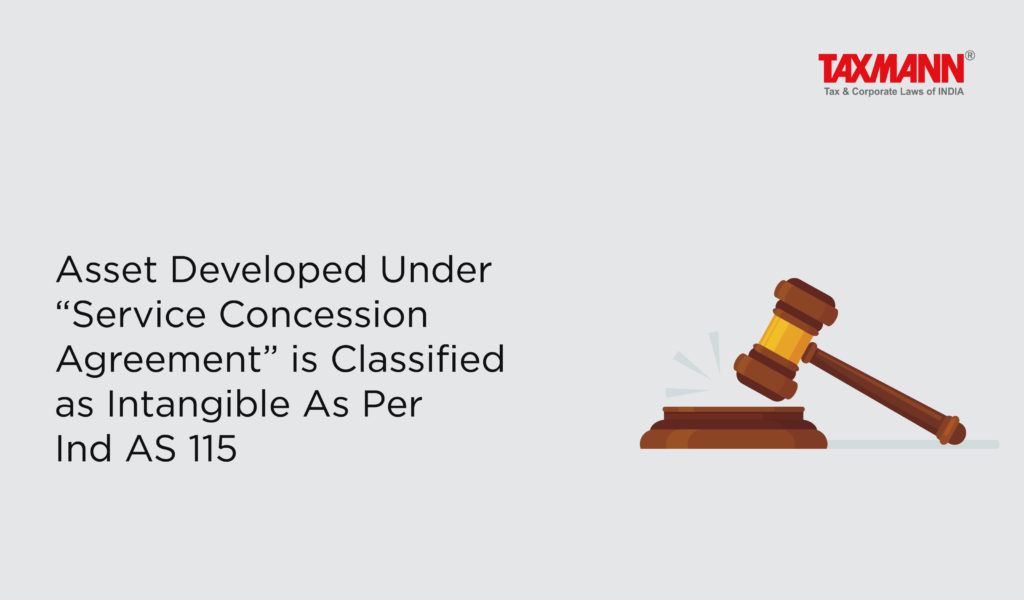Asset Developed Under ‘Service Concession Agreement’ is Classified as Intangible As Per Ind AS 115
- Blog|News|Account & Audit|
- 2 Min Read
- By Taxmann
- |
- Last Updated on 22 August, 2023

A Ltd. herein referred to as “the company” formed as a Special Purpose Vehicle (SPV) for developing the railway network within the state. The company entered into a “Service Concession Agreement” with Indian Railways that provided the company an “exclusive right, license, and authority” to construct, operate and maintain the railway system for a period of 30 years. The company then incurred the capital expenditure on construction of the railway network and classified them as “Capital Work in Progress” (CWIP) till the commencement of commercial operation. After the commencement of the commercial operations, the assets under CWIP were classified as “Rail Corridor” under “Property, Plant and Equipment”.
The statutory auditor of the company observed the creation of “Rail Corridor” assets, its classification, and the method of depreciation. The company used to depreciate the asset on the basis of revenue without considering its useful life. However, the auditor was of opinion that company should specifically depreciate the asset based on its useful life and not on a revenue basis resulting in short charging of depreciation.
Further, the auditor analyses the company’s “Concession Agreement” and identifies it as a “Service Concession Agreement” defined under Appendix D of Ind AS 115. This appendix prescribes that the right to construct, operate and maintain rail infrastructure should be recognized as an “Intangible Asset” instead of “Property, Plant, and Equipment”.
The management of the company was not in consensus with auditor’s opinion and hence sought the opinion of the Expert Advisory Committee (EAC) of the Institute of Chartered Accountants of India regarding the classification of the “Rail Corridor” assets as “Right to Use Asset” under “Intangible Asset” and its method of depreciation.
To understand the application of Appendix D of Ind AS 15 in case of service concession agreement and EAC opinion on the given case.
Click Here To Read The Full Story
Disclaimer: The content/information published on the website is only for general information of the user and shall not be construed as legal advice. While the Taxmann has exercised reasonable efforts to ensure the veracity of information/content published, Taxmann shall be under no liability in any manner whatsoever for incorrect information, if any.

Taxmann Publications has a dedicated in-house Research & Editorial Team. This team consists of a team of Chartered Accountants, Company Secretaries, and Lawyers. This team works under the guidance and supervision of editor-in-chief Mr Rakesh Bhargava.
The Research and Editorial Team is responsible for developing reliable and accurate content for the readers. The team follows the six-sigma approach to achieve the benchmark of zero error in its publications and research platforms. The team ensures that the following publication guidelines are thoroughly followed while developing the content:
- The statutory material is obtained only from the authorized and reliable sources
- All the latest developments in the judicial and legislative fields are covered
- Prepare the analytical write-ups on current, controversial, and important issues to help the readers to understand the concept and its implications
- Every content published by Taxmann is complete, accurate and lucid
- All evidence-based statements are supported with proper reference to Section, Circular No., Notification No. or citations
- The golden rules of grammar, style and consistency are thoroughly followed
- Font and size that’s easy to read and remain consistent across all imprint and digital publications are applied



 CA | CS | CMA
CA | CS | CMA
